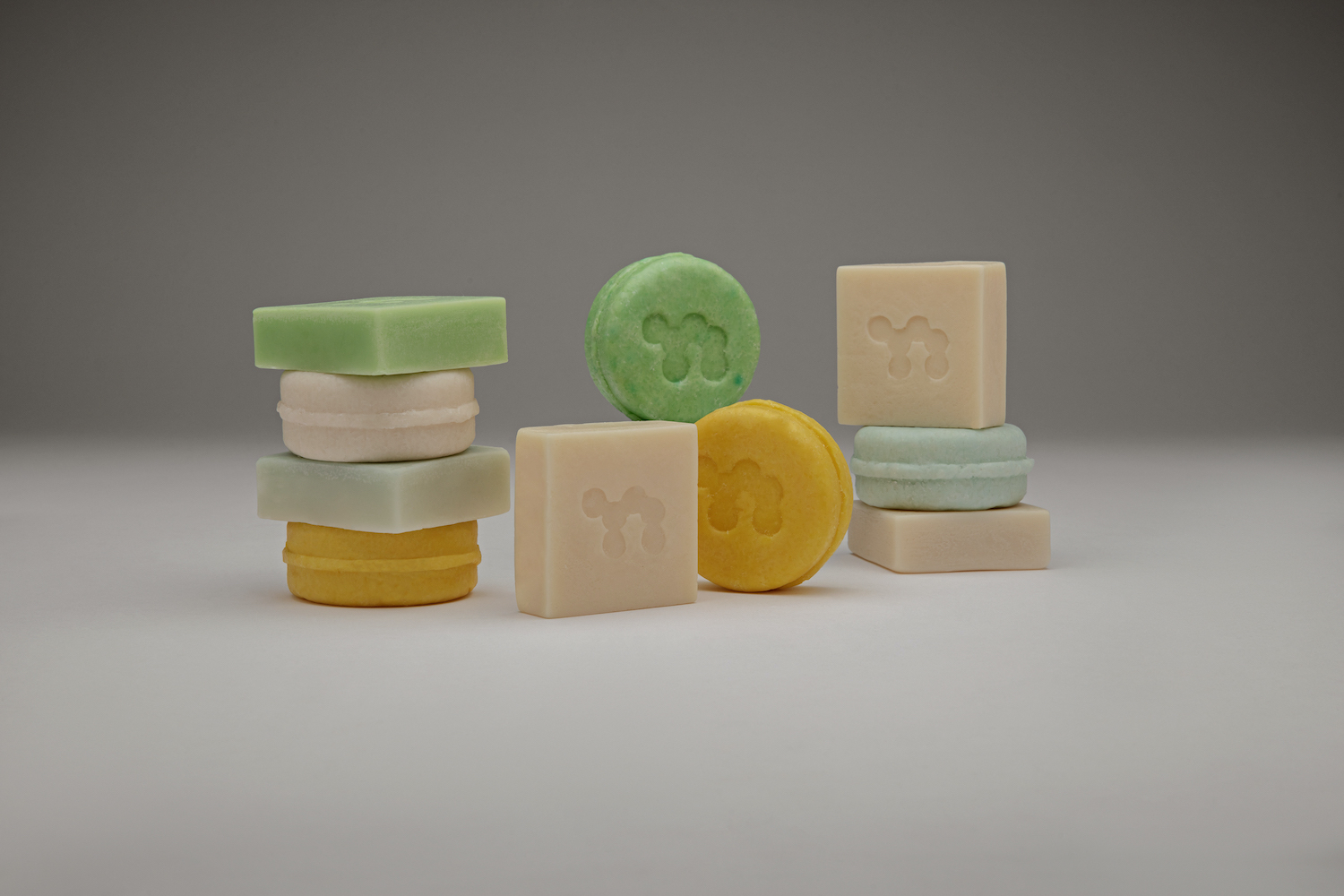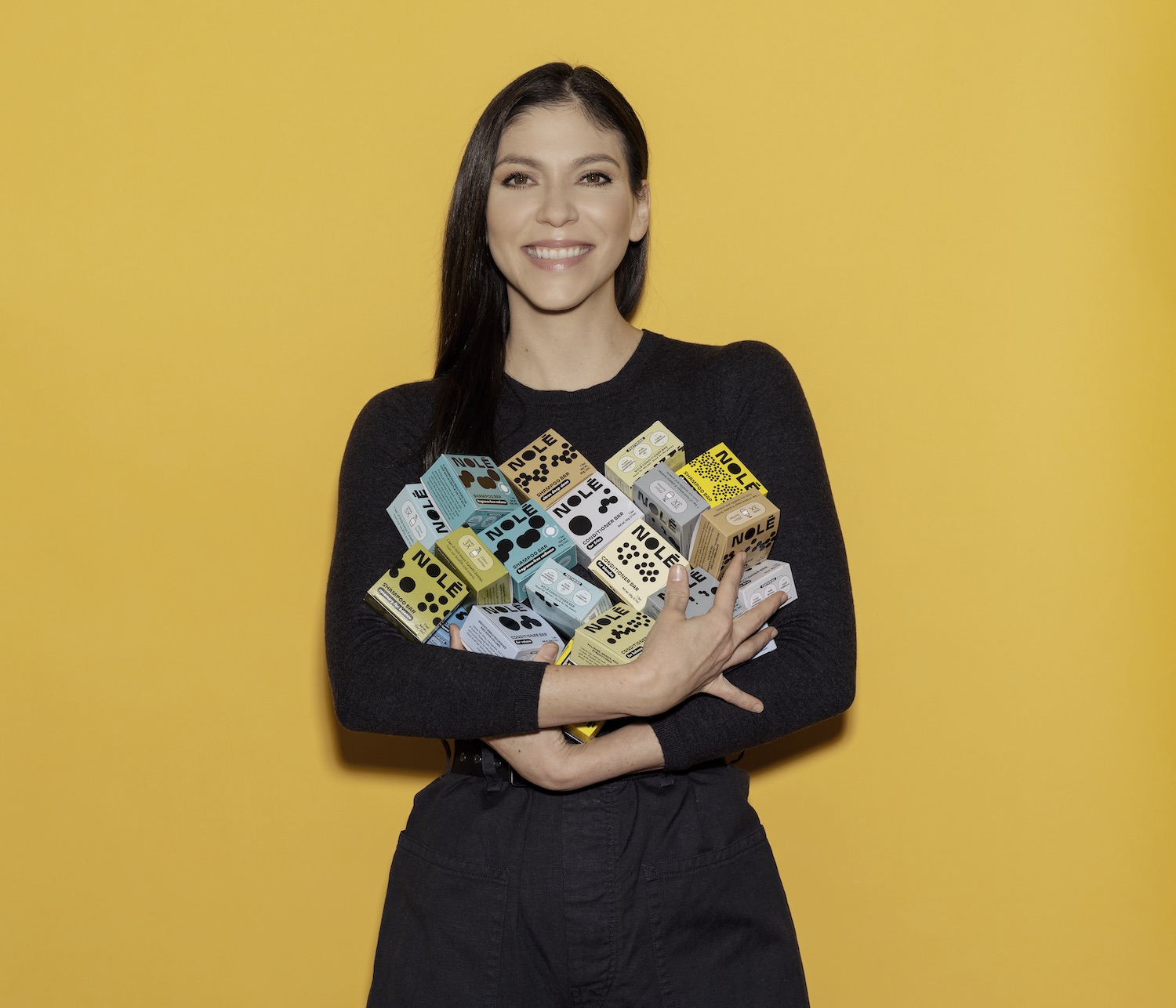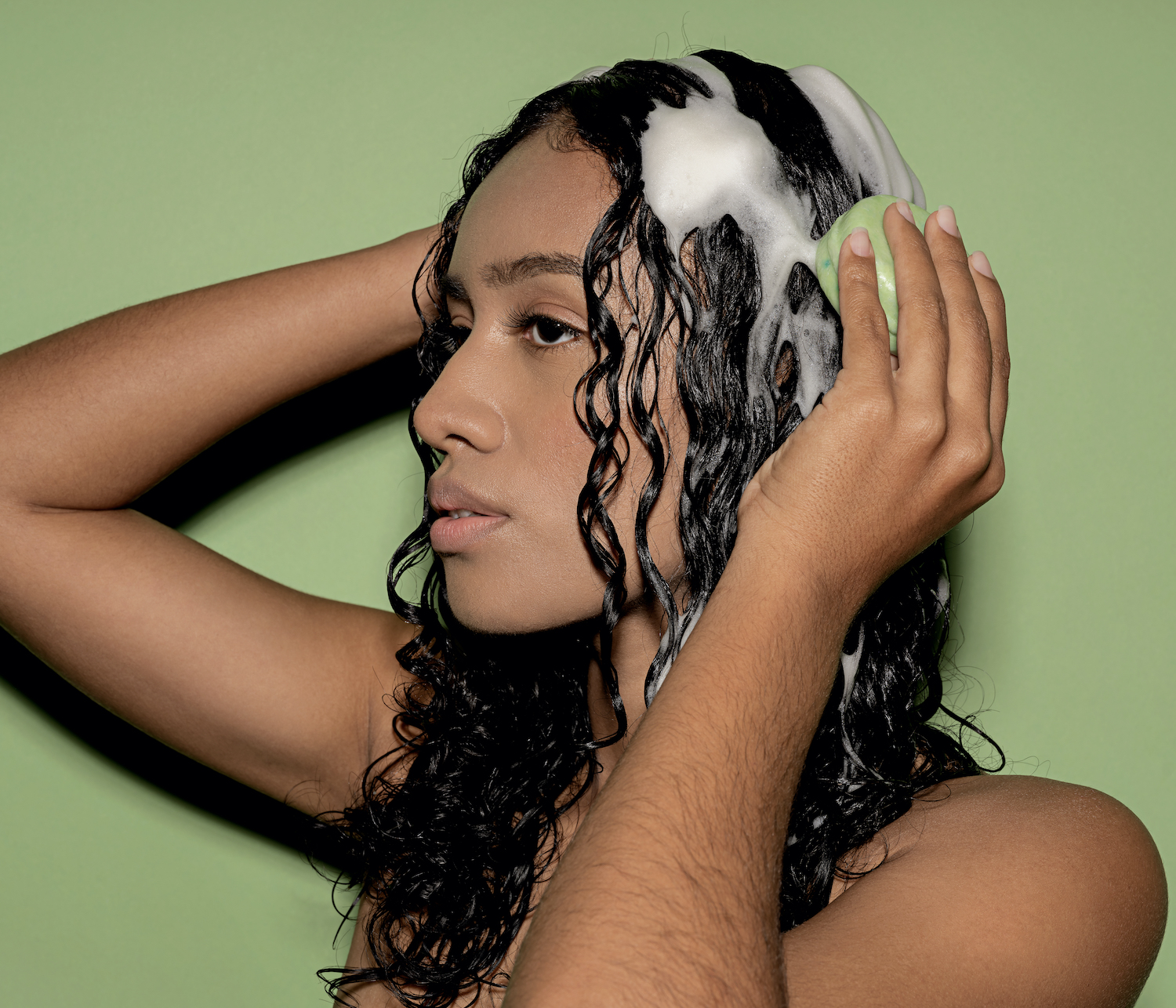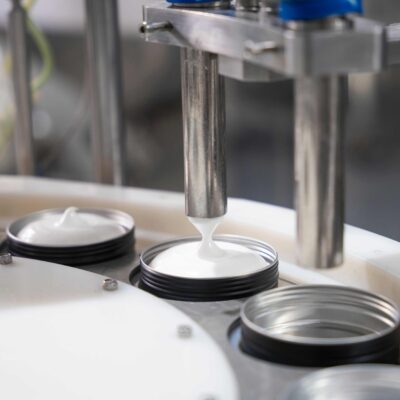
Guatemalan Brand Nolé Launches Batana Oil-Packed Shampoo And Conditioner Bars In The US
When Alida Boer visits a new country she likes to suss out what makes it so special: Is it the food? The culture? What do the people living there have that other places don’t?
While traveling in La Mosquitia, Honduras from her neighboring home country of Guatemala, she learned about the wonders of batana oil. She dismissed praise of the ingredient at first. “Everyone has an ingredient that they think is ‘miraculous,’” says Boer. Her interest peaked, though, once she learned a big beauty conglomerate tried to patent the oil, but the government shut down its efforts. “That’s when I was like, ‘Oh, well, if they want it that bad, this oil has to have something to it,’” she says.
Boer was experiencing postpartum hair shedding that was exacerbated by a stressful separation. Rich in oleic and linoleum acid, batana oil is extracted from the nut of the American palm tree and known in Honduras for combatting hair loss, an issue that’s spiked during the pandemic. Boer decided to try it to see if it could ameliorate her hair loss. “It smelled like burnt coffee, just very rustic,” she recounts. She applied it consistently once the pandemic hit and she was confined to her home. She detected improvements to her hair loss after a couple of months.
She was sold on the results, but recognized she had the luxury of time amid the pandemic to apply the oil every single day. Other people seeking out strong, healthy hair didn’t have the time or willingness to do that. Nolé, a line of plastic-free shampoo and conditioner bars, serves as vehicle for the star ingredient in products that make it user-friendly.

Boer launched Nolé in Guatemala last year with $10,000 from her personal savings. Last month, it made its debut in the United States at the trade show Natural Products Expo West. Nolé’s shampoo and conditioner bars are priced at $16.50 each or $30 for a shampoo and conditioner set. Scents include citrus for a deep clean, rosemary for balance and coconut for frizz. Arnica, recommended for volume, is the bestseller while a fragrance-free version has proven to be popular among American consumers, according to Boer. The bars omit sulfates, parabens and salt.
Nolé as well as Boer’s clothing and accessories brand Marias are headquartered in Guatemala. Marias works with local female artisans in the country to preserve and highlight its traditional textile techniques. Nolé has similar communal ties. The brand works with a Honduran co-op that harvests and extracts batana oil by hand. An intermediary transports the processed ingredient to Nolé’s manufacturer in Guatemala.
What sets Nolé apart from the beauty company that sought to swoop in and monopolize the ingredient? Boer says, “I’m from Central America, so I guess it feels more like home instead of having an outsider coming in, and we’re basically also giving an income. We’re not just like, ‘Oh, we’re going to take this,’ we’re like, ‘Let’s work together.’ They have been using it and selling it for years.”
Word of Nolé spread before the brand officially touched down in the U.S. Boer, who’s currently based in New York, passed samples to moms at her son’s school. They noticed results in their hair and subsequently paid to have the products shipped from Guatemala. As result of the initial test group and Boer’s 17,200 Instagram followers, Nolé’s main customers to date are 25-year-old to 45-year-old women. However, its target audience skews younger. “I feel like gen z already come with a different mindset of helping the environment, of not creating waste,” says Boer. “So, that’s who we’re targeting.”

Branding has been a big priority for Boer. She says, “We really focus on clean formulas and no plastic, but, at the same time, we wanted to be fun and funky. Sometimes clean products have this very sterile look, so we wanted to make it a little bit different. It’s not just a good product, it also looks pretty.”
Buzz from Expo West drummed up interest from mom-and-pop shops. Nolé is currently available on Amazon, which is a decision Boer mulled over. She received advice from consultants that helped her navigate the marketplace and the brand’s presence there. “At the end of the day, Amazon has access to so many more people than other fine retailers, and I want Nolé to be accessible,” she says. “I want more people to have access to a great shampoo and conditioner at a reasonable price.”
Nolé brand is increasing production and growing its factory to keep up with demand. Boer’s been approached by large retail players for its products, but doesn’t want to “over promise and under deliver.” For now, she says, “We’re happy to grow slowly, but surely.”





Leave a Reply
You must be logged in to post a comment.